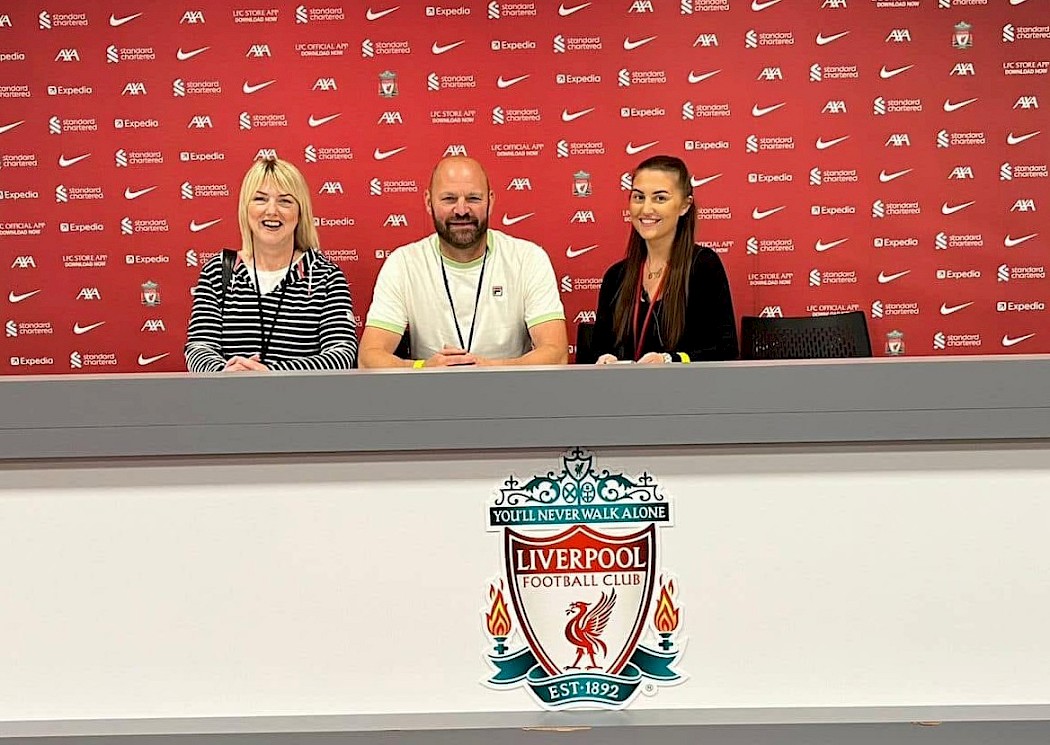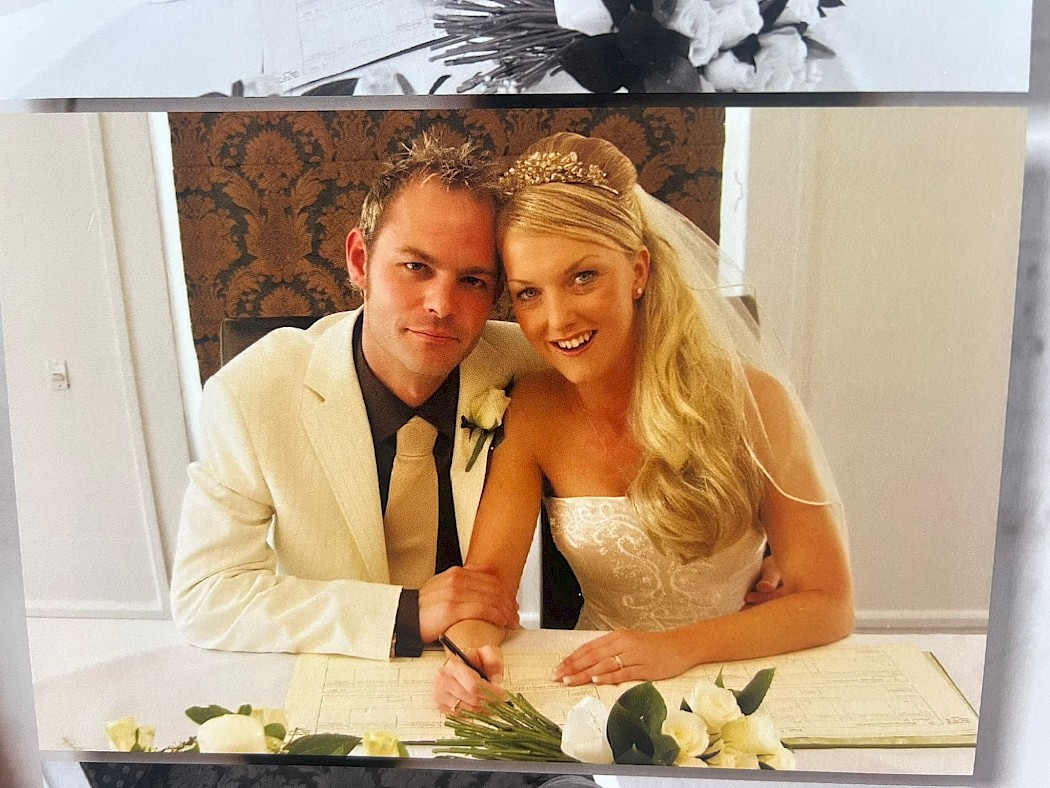Medical Solicitors’ director, Christine Brown, is representing the family of a 48-year-old woman from Rotherham who died following a routine NHS hysterectomy undertaken at a private hospital in the town.
Maxine Spittlehouse died in July 2024 after undergoing a hysterectomy and bilateral salpingo-oophorectomy at Kinvara Private Hospital as an NHS patient.
Shortly after surgery, which she was advised to undergo to manage pain and heavy bleeding caused by fibroids, Maxine collapsed and was transferred to Rotherham Hospital where she sadly died six days later.
An Inquest into her death is to commence on Monday, 28th April at Doncaster Coroner’s Court. Christine will be representing Maxine’s husband David and their daughter Millie during the hearing.

Maxine, David and Mille (c) Spittlehouse family archives
Inquest concludes neglect contributed to Maxine’s death
After four days of evidence, Doncaster assistant coroner, Georgina Gibbs, made a finding of neglect in relation to the death of Maxine Spittlehouse.
The coroner said that not ensuring basic checks to identify internal bleeding, not obtaining blood results earlier, not escalating care to consultant level, and not effecting urgent transfer to the NHS hospital for a CT scan and/or laparotomy were gross failures that caused avoidable death.
The inquest heard how Maxine died on 22nd July 2024 at Rotherham Hospital after suffering a major haemorrhage. She had undergone gynaecological surgery as an NHS patient at Kinvara Private Hospital six days earlier.
Shortly after a hysterectomy and removal of both ovaries and fallopian tubes, 48-year-old Maxine had severe abdominal pain. Into the early hours, her condition deteriorated, and she began vomiting. Nurses raised concerns multiple times and suggested to the junior doctor on shift that Maxine should be transferred to the local NHS hospital for emergency care.
However, the junior doctor failed to recognise what the coroner called a 'clear and obvious risk' of internal bleeding, and did not fully appreciate the urgency of the situation.
During a telephone call with the consultant, the junior doctor did not convey important information and the consultant failed to ask all the reasonable questions to exclude a potentially obvious cause.
The coroner said that bleeding internally was an obvious and most likely possibility and managing the risk required urgent action in the form of a transfer to the NHS hospital.
Maxine suffered a cardiac arrest and was transferred to Rotherham Hospital over five hours after concerns were raised by nurses. She underwent emergency abdominal surgery for the internal bleeding, but her condition continued to deteriorate. She suffered a hypoxic brain injury and was taken off life support.
In delivering her conclusion on Friday, 2nd May, Miss Gibbs found that there were multiple missed opportunities by Kinvara Hospital's junior doctor and the consultant to recognise Maxine’s deteriorating condition and internal bleeding, and to transfer her to Rotherham Hospital. She found that overall responsibility for Maxine's care lay with both doctors.
The inquest heard that there was a lack of basic equipment at Kinvara Hospital to deal with emergencies and therefore urgent transfer to the NHS hospital was required. This included:
- No point of care HemoCue device to provide a rapid haemoglobin assessment that may have indicated Maxine’s deteriorating condition. It had broken six months before and hadn’t been replaced;
- No ultrasound scanning machine or other imagine facilities to assist with diagnosis of internal bleeding;
- No blood fridge which meant there were no units of blood available for a transfusion;
- The manual blood pressure device could not be located
The inquest was also told how the junior doctor was on a 24-hour shift.
Since Maxine’s death, Kinvara’s medical director, Mr Vasu Karri, told the court that a new point of care monitoring device and blood fridge have been installed. He also told how, from this month, staff will no longer work more than 12-hour shifts.
On the conclusion of neglect, Maxine’s husband, David said: “Today’s finding goes some way to getting justice for Maxine. What is very clear is that her death was avoidable. Not only was Maxine failed by those responsible for her care, Kinvara Hospital lacked important equipment to help diagnose and treat her internal bleeding.
“My family and I would like to thank the coroner and our team from Medical Solicitors in helping us understand what went so horribly wrong with Maxine’s care.”
The family’s solicitor, Christine Brown, added: “The finding of neglect reflects the seriousness of the failings in Maxine’s care. It also highlights that patients’ reasonable expectations of high standards and well-equipped facilities in the private sector were not met in this case with tragic consequences.
“NHS patients undergoing surgery in the private sector are entitled to expect that standards are at least as good as in the NHS now that outsourcing by the NHS to the private sector is a common experience for NHS patients and is set to expand.”

David and Maxine Spittlehouse on their wedding day (credit Spittlehouse family archives)
NHS and private sector partnership to cut waiting times
Following the pandemic, private hospitals have routinely and increasingly been used to treat NHS patients in an effort reduce waiting list times.
In January 2025, the government announced a partnership between the NHS and the independent healthcare sector as part of their Elective Care Reform Plan. The deal was devised to tackle specialist areas of treatment with some of the longest waits, such as gynaecology and orthopaedics, with the aim to cut overall NHS waiting times down to 18 weeks.
While this initiative does assist in reducing wait time for treatment, assurances need to be made by the government that these facilities are suited to provide the necessary care for patients.
Christine Brown, a senior solicitor at Medical Solicitors, specialises in gynaecology and fatal medical negligence claims. She says that what happened to Mrs Spittlehouse highlights the consequences of such a deal between NHS and private care.
“Waiting list backlogs for non-urgent, consultant-led treatments remain a huge problem following the pandemic. One solution has been for there to be greater use of the private sector, with particular emphasis on joint operations and gynecological procedures, but patient safety should not be compromised.”
Maxine's family are now calling for greater regulation of private hospitals and have launched a petition to lobby the government to review regulations around hysterectomies within private healthcare.

